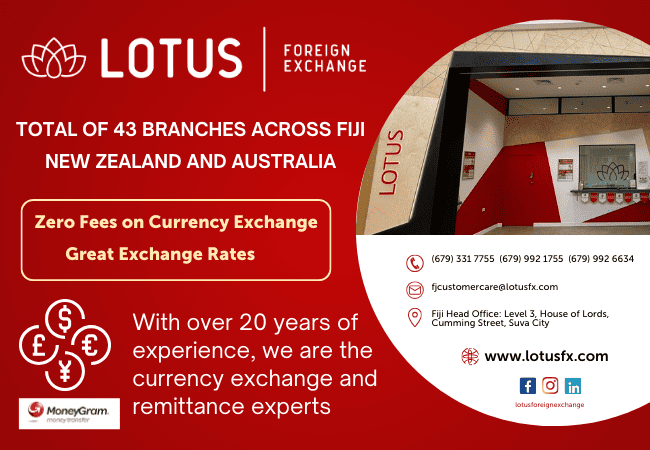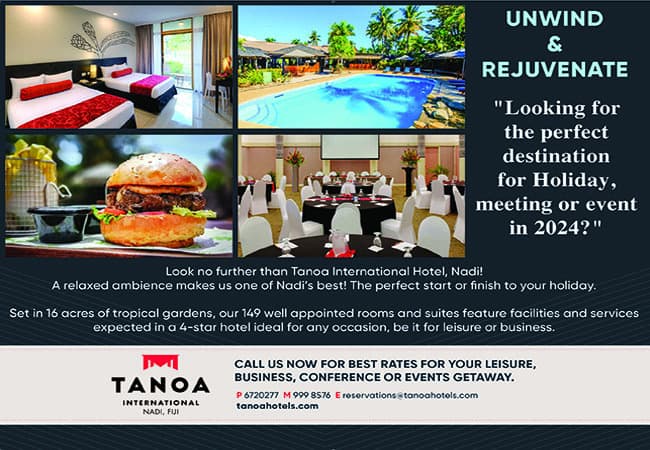By Alipate Pareti
Fiji’s Naibili Vatunisolo is one of the best parasports athletes in the South Pacific region, having won a bronze medal in discus at the 2022 Commonwealth Games in Birmingham.
She acquired her disability after undergoing knee surgery in 2010.
In 2017, she represented Fiji in the Fazza Para-Athletics Championships in Dubai, and in the Pacific Mini Games in Vanuatu. She says sports “has reminded me that my disability is not a barrier to my journey.”
Speaking at a recent panel, she paid credit to athletes of the past who have motivated her to take up sports, despite the challenges compelled by her disability.
“I have learnt a lot of things, in terms of dedication, determination, discipline and perseverance,” she said.
A three-time flag bearer, Vatunisolo has represented Fiji in many international competitions, including the South Pacific Games in Samoa, the Arafua Games in Darwin, the Queensland Athletics Track and Field Championship, and the Pacific Mini Games in Saipan.
And she would like to see more women living with disabilities participate in parasports.
“I know there’s a lot to be done, in terms of women with disabilities taking part in many levels of the sports…and I’m willing to help, assist and encourage women to be part of sports activities, to see women themselves being involved in, for example, officiating, coaching and administration.”
Vatunisolo currently trains under long time paralympics and parasports coach, Fred Fatiaki, as they prepare to qualify for the 2024 Paris Paralympics.
The enduring footsteps of Fred Fatiaki
Fred Fatiaki is a name that is heard often amongst the region’s parasport competitors.
Fatiaki is known for his own athletic abilities and track record as a coach.
Fatiaki, who was born with cerebral palsy, started his athletic career in 1997, “starting off with table tennis. Then in 1999, I mixed athletics as a runner and a little bit of throwing. I competed for almost ten years”.
Fatiaki won a gold medal in table tennis at the then Fiji Games. In 2002, he won his first international silver medal in the 200m event at the Far East and the South Pacific Games for the Disabled.
“With the help of some of the wonderful officials back then…I would not be sitting here today, talking about my experiences and what sports has done in my life, and becoming a coach here in Fiji in terms of parasports,” he reflects.
After his retirement in 2005, Fatiaki became one of the first coaches in Fiji with a visible disability. He is still closely engaged in the development of parasports in Fiji.
“I do intend on helping upcoming coaches and athletes with disabilities to follow my footsteps and create opportunities not only in sports, but job opportunities also, and studies”.
He is also focused on getting more women into parasports, as only two Fijian women have competed in the Paralympics, Sarote Fiu (Athens 2004) and Mere Rodan (Rio 2016).
“I’m also finding it hard in getting women to participate in sports in my role as a coach. But nothing is impossible, I’m trying my very best to get our women in sports to be part of the program… and hoping for the best.”
Fatiaki also wants to revive the Fiji Wheelchair Races, a competition that has not been staged for some years.
We all have that right to be treated equally
Meanwhile, all-round athlete Leslie Tikotikoca says for many years he knocked on doors with no success.
Now he wants to change that.
Tikotikoca acquired his disability when his leg was amputated at 13 years of age.
“Going to a prominent boys’ school, there were a lot of challenges, where teachers did not know how to interact (with me),” said Tikotikoca.
“It took me 10 years to search for sports to take part in. There were a lot of sporting federations that I knocked on their doors, but there was a lot of neglect and silent treatment given…but that did not stop me from my passion of taking part in sports.”
Eventually, Tikotikoca represented Fiji in sporting competitions, medaling in javelin and archery.
Now he is at the forefront of speaking against stigma and discrimination.
“Trying to go into sports has got a lot of challenges, with attitude and all barriers… but I believe if people had more human dignity in providing that human service to everyone and not wearing that lens of being judgmental towards the disabled/abled or whoever he is, because we all have that right to be treated equally,” he stressed.
“Platforms are there for opportunities, where we can form networks with the disability sector, and talk about resources and funds.” Noting that these discussions have been going for many years, “The question I have is, when will we start?
“Are we going to wait for another kid who acquired a disability for ten years to take part in sports? When will we open our hearts, eyes and minds to reach to the bottom and approach people to serve them? Or are we just there for work, to get an income and go back home?
“So that’s why we are very passionate to fight and voice out challenges, because for us persons living with disabilities there are always challenges. It’s not only from sports but the environment as a whole”, he said. “Parasports encourages people to see (us) living with disabilities, not by our disability but as a person and by what we are capable of achieving within our ability.”

